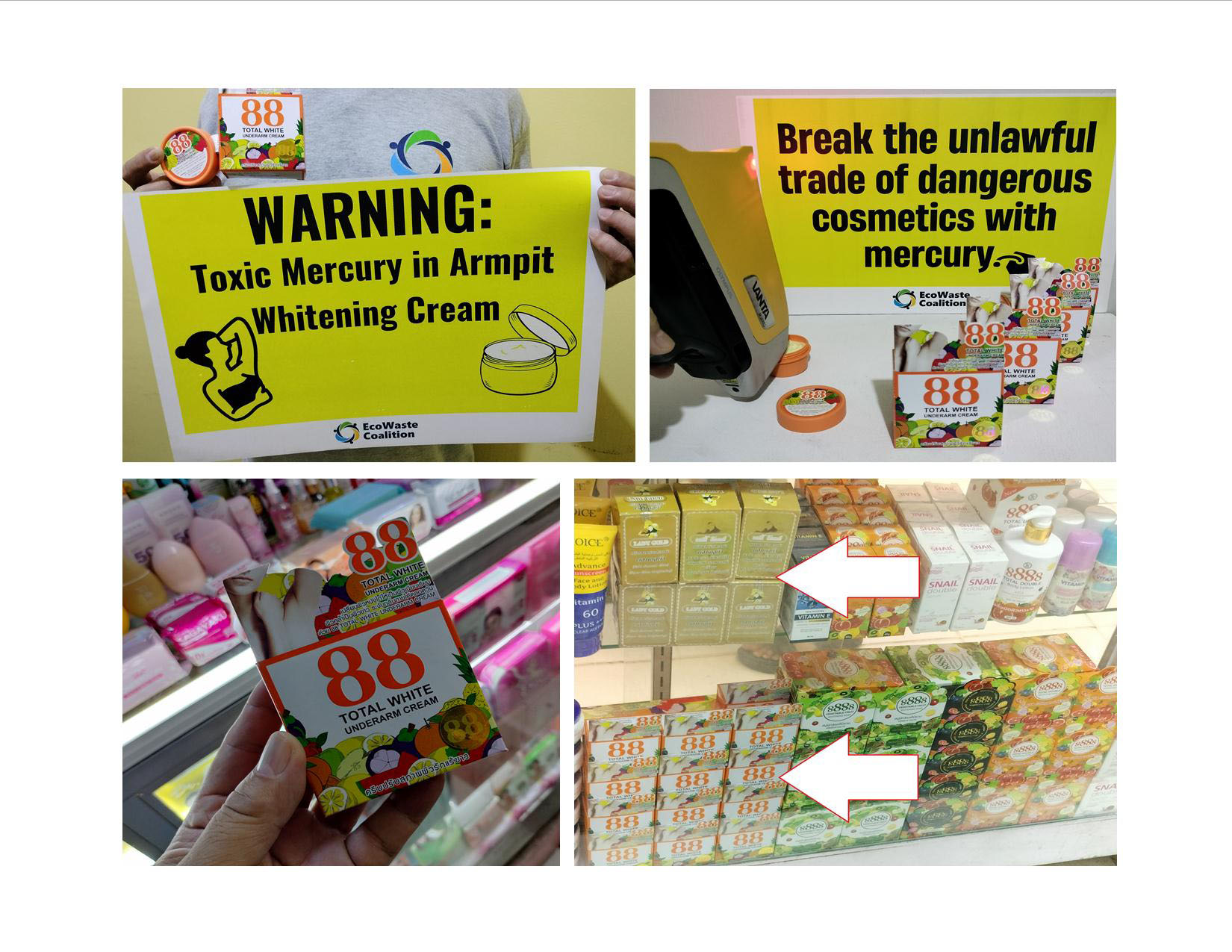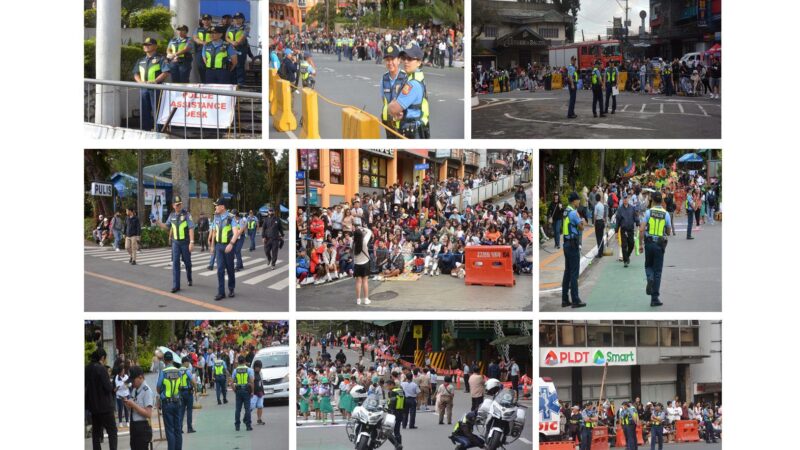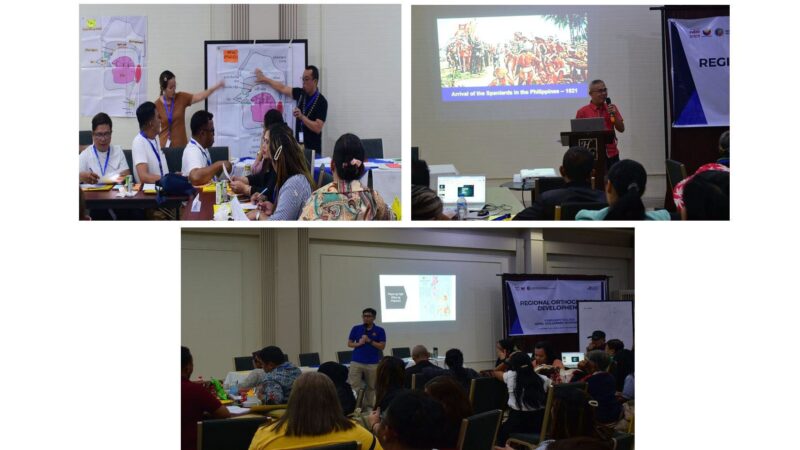Singapore Bans Underarm Cream for Containing Banned or Potent Ingredients

(Prohibited underarm whitening product also sold with impunity in the Philippines – EcoWaste Coalition)
12 September 2024, Quezon City. The Health Sciences Authority (HSA) of Singapore has issued an Alert against a topical whitening product containing banned or potent ingredients, mercury in particular after a woman was admitted to a hospital due to a severe hypersensitivity reaction that can be life-threatening.
Citing information from the HSA Alert, the environmental and health watchdog group EcoWaste Coalition warned that 88 Total White Underarm Cream, which is widely sold in the Philippines, was found by Singapore’s national regulator for health products to contain a high level of mercury (a toxic heavy metal) and betamethasone (a potent steroid), as well as salicylic acid (an anti-acne and exfoliating agent).
“As per our monitoring coinciding with the recent 9.9 online shopping sales, dozens of product listings for 88 Total White Underarm Cream can still be found in major e-commerce sites despite being flagged by the Food and Drug Administration (FDA) in 2021,” said Aileen Lucero, National Coordinator, EcoWaste Coalition. “This product can also be obtained from some non-compliant beauty product kiosks and shops in many parts of the country.”
According to the HSA Alert: “A woman in her 30s was hospitalized after using 88 Total White Underarm Cream on her underarms for a month. She developed a severe rash affecting most parts of her body, as well as liver impairment with raised liver enzymes and jaundice.”
The patient was “diagnosed with allergic contact dermatitis and drug reaction with eosinophilia and systemic symptoms (DRESS) due to mercury exposure,” the Alert said.
As explained in the Alert, “DRESS syndrome is a severe hypersensitivity reaction characterized by skin rash, blood abnormalities and multi-organ involvement (e.g., injury to the liver and/or kidneys) which can be life-threatening.”
Echoing the HSA Alert, the EcoWaste Coalition appealed to Filipino consumers to shun the said product, which is sold with impunity at online and beauty product stores despite being banned through FDA Advisory No. 2021-1187.
The FDA banned the product after finding it being sold online without proper market authorization. Samples of this unauthorized product were subsequently screened for mercury by the EcoWaste Coalition and found to be contaminated with mercury up to 3,130 parts per million (ppm), way above the 1 ppm limit for mercury as a contaminant set by the ASEAN Cosmetic Directive.
More recently, Hong Kong’s Department of Health purchased 88 Total White Underarm Cream from an online platform and had it tested by the Government Laboratory, which found the product positive for betamethasone valerate, a controlled ingredient for prescription medicines.
According to the United Nations Environment Programme (UNEP), mercury is used in some skin lightening products “to block the production of melanin, leading to lighter skin tones,” listing “kidney and liver damage, neurological problems, (and) developmental issues in children” among the health effects.
Steroids, according to UNEP, are used “to treat skin conditions, including eczema, with skin whitening as a side effect,” which can result in “rashes and pustules, hair growth on the skin, (and) infections.”
The HSA Alert concluded with an advice to consumers to “see a doctor as soon as possible,” adding “sudden stopping of products containing steroids without medical supervision may worsen underlying skin conditions, e.g., eczema, and result in other serious withdrawal symptoms such as fatigue, confusion, and low blood pressure.”
For the protection of Filipino consumers, the EcoWaste Coalition renewed its call for the strict enforcement of the global, regional, and national ban on mercury cosmetics. Last August 15, the group proposed to the FDA to convene a solution-focused multi-stakeholder summit to address the never-ending problem with mercury cosmetics, permanently stop their importation, distribution, sale, and use, and safeguard human health and the environment. (PR)
Reference:
https://www.info.gov.hk/gia/general/202409/03/P2024090300591.htm







